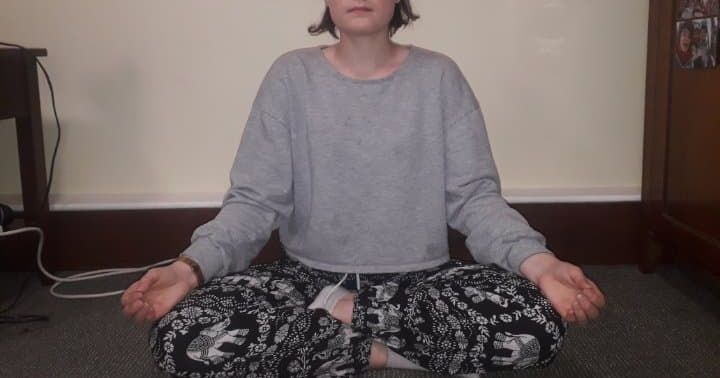
Mindfulness is the key to success, productivity and sound mental health
Why everyone should try their hand at meditation
Mindfulness is often dismissed as the domain of hippies and those arty, airy-fairy types who aren’t quite in touch with the real world. But what is mindfulness? What springs to mind is probably a woman wearing elephant-patterned trousers, sitting cross-legged with a serene smile on her face (i.e. me in the cover photo of this article).
But I would like to dismantle this stereotype; mindfulness is far more than an aesthetic. Mindfulness is about being present; it’s about putting things into perspective; it’s about detaching yourself from your own ego.
Mindful awareness is the condition of the fair, alert witness, not the judge, jury or prosecutor. To witness is to stand by, to notice what is happening in your mind and simply take it in as information. We can then act with reason and without compulsion, relating to what is happening rather than being possessed by it.
We are able to fully listen, without being disturbed by your own thoughts.
Cambridge, as we all painfully aware, is a stressful place. With Week 5 having reared its ugly head, we should all be putting our mental health first. Why not start trying to incorporate some mindfulness practices in your daily routine to combat the stress monster?
Meditation
Meditation is the ultimate expression of mindfulness. It allows you to enter a state of mind where you are detached from your thoughts, at ease with yourself and free from anxiety. Meditation is about realising you are not in your body; you are your body. This allows you to feel utterly comfortable being alone without any stimulation. But it takes practice.
How to meditate:
1. Set a timer – I would go with 15 minutes to start with.
2. Sit comfortably, or even lie down if you prefer, whatever position you feel relaxed and comfortable in.
3. Close your eyes, focus on your breathing and ignore all the other noise in your head
4. If thoughts pop up, accept them and let them pass – don’t engage with them.
5. Keep focusing on your breathing, and don’t think, just be.
You should reach a peaceful headspace where you are perfectly content with just existing in that moment, and nothing else matters. It won’t work if you are half-hearted about it, or if you are feeling self-conscious.
Taking an aimless wander
Walks seem to have become the domain of dog-owners, families and the elderly. But I think anyone who is feeling stressed or a little caught up in their own head should try taking a walk, not one to get from A to B, just a wander, with no strings attached.
A walk oxygenates your brain, as well as giving you a chance to reflect and get your thoughts in order. It also allows you to appreciate natural beauty, and for this reason, I would recommend the Botanical Gardens as the best spot in Cambridge to take a stroll.
Count your blessings
It is easy to lose a sense of perspective when you are stuck in the pressure cooker that is Cambridge. The stress can be stifling and unrelenting. Part of being mindful is being aware of the bigger picture, of your role in the ‘grand scheme of things.’ It can help to take stock of how lucky you are, what is important and what is trivial. That essay due in tomorrow? Trivial. Having an amazing support network of family and friends? Important.
Do some art
I am not ‘good’ at art in a technical sense. But I love being creative and expressing myself, so I make a lot of art. Art is a fantastic way of getting out your own head and expressing your emotions, not least because colour and emotion are so closely interlinked. Draw what you feel. And remember, it’s not the finished result that’s important, it’s the process you underwent to get there.
Write a diary
By ‘diary’, I don’t mean a journal recording your day-to-day activities. I mean an outlet for you express what’s going on inside your head. Next time you’re feeling overwhelmed, stressed, confused or sad, grab a pen and paper and get it all out. The mind can be a messy place; writing it all down can help you achieve some order inside your head.
Anxiety is what makes us unproductive, because it saps our focus. And it’s a vicious cycle, because unproductiveness naturally generates further anxiety, making us even more unproductive. Mindfulness conquers anxiety, whether that be through expressing it in a painting or words, putting it into the big perspective, or ejecting it through meditation. We can then be wholly focused on what we are doing, entirely in the present moment.
I can promise you that even though they take some time out of your day, these practices will make you more productive in the long run.









































